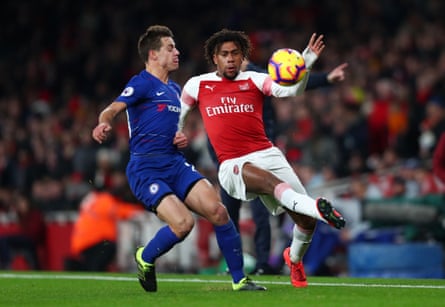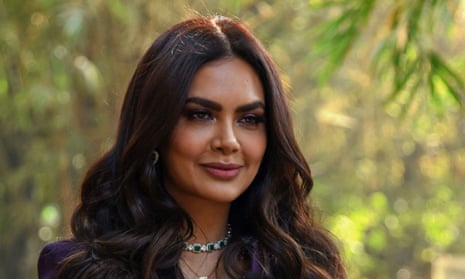“Did you know Gandhi was racist?” A white friend sits opposite me, grinning so widely I wonder if there’s going to be a punchline. “We know,” I reply, “we all know.” Her smile fades quickly and she moves on. I stop listening, the noise in the cafe dies down and the soundtrack to a sad Bollywood film fills the moment. She thought I didn’t know. Why don’t I talk about it more? I hide the trauma of black people because Gandhi was one of the few saviours we had in our toxic community. Anti-blackness was a punchline I wasn’t expecting.
One thing I remember from studying A-level sociology is the idea of how you develop through your primary and then your secondary education – something that contributes greatly to social dynamics. Primary education is what you learn from your family home, secondary education is what is passed on to us from institutions.
Our primary education, influenced by generational attitudes and exacerbated by class and race structures, is our base before we walk into a classroom and are told what to think. The different ideologies passed down to us are either embraced or eventually unlearned – and I’m hoping a generation of British Indians would have unlearned all the casual racism we witnessed against black people.
Burnt Roti, the south Asian magazine I founded, is concentrating on this for our next print issue. There is a thirst for our community to nurture an activist movement, and our magazine would like to be at the forefront. Yet we must force ourselves to look within first. Some people feel they have the right to align themselves with black people, as if their struggle has been equal. But there were black slaves in India and Pakistan centuries ago, and today, Africans who move to India to study are regularly beaten. Yes, we have aspects of their experience in our lives, but not to the same extent; so why are we so adamant? When our mothers tell us not to speak to black people, or if they refer to someone as “dark” while grimacing, why do we not correct them?
Two days ago, Arsenal supporter and Bollywood actor Esha Gupta uploaded a screenshot of a text conversation on Instagram stories. She and a friend both laughed at footballer Alex Iwobi, claiming that “evolution stopped for him”, referring to him as “gorilla-faced”, and a “neanderthal”. The criticism she faced was not just from Bollywood fans, but Arsenal supporters questioned her loyalty to the team. I wondered if she would have faced that level of criticism if it wasn’t for the football community’s devotion to their player. Her apology included that she had “been victim of racism myself”, digging herself deeper into complacency about anti-blackness. It is a stark reminder that such words are uttered so casually and sometimes without reprimand.
At London’s School of Oriental and African Studies in 2015, Heems, a New York rapper of Punjabi/Indian descent, was called out for using the N-word in his live shows. Heems apologised at the talk, during which one woman said, “Your whole talk was about solidarity. It was about you being there for me, me being there for you, recognising the differences and how we’re played off against each other. And at the drop of a hat, with that word, what you do is you show me the difference … If it’s about us constantly having to remind ourselves that we need to be together to fight this, that word needs to come out of your lexicon.”

The Toronto-based rapper Nav, of Punjabi descent, uses the N-word freely in his music, with apparent disregard and seemingly without awareness of any consequence. I truly hadn’t heard of him until very recently – so I suppose the consequence is a lack of success. Meanwhile, a Netflix special from the Indian actor and comedian Vir Das, Losing It, has him comfortably and repeatedly associating Africa with malaria and then competitively asking “They got Black Panther. Where is ours? Where is Brown Cow?”.
India’s history of racial injustice starts as early as the 7th century, when descendants of the Bantu people of east Africa were brought to India as slaves by Arabs, followed by the Portuguese and then the British. When slavery was abolished in the 18th and 19th centuries, they fled into the country’s jungles, fearing torture. They are now known as the Siddi community and are spread across India and Pakistan. Despite being Indian for centuries, they are still largely viewed as outsiders.
The ongoing caste and colourism issue in Indian culture exacerbates racism towards black people. Those at the bottom of the caste system, Dalits, tend to be of darker skin – and so connections are made with race stereotypes. A few of us in the UK were introduced to the idea of skin-lightening creams from as young as 12 (I wasn’t because I was apparently “light-skinned enough to get married”); it took me years to recognise this as colourism.
A few friends at my school with darker skin didn’t have the privilege of my skin tone, and would come to school with burns from bleaching creams. The biggest-selling skin-whitening cream in India, Fair and Lovely, is promoted regularly by Bollywood actors, who essentially tell us that we won’t get jobs or men unless we lighten our skin.
We’ve created a comfort blanket under terminology such as BAME and POC (people of colour), and presume we can stand beside black people, emulate them and share their experiences. But that assumption needs to be examined – we have a lot to answer for.
Let’s start simple. When you’re with friends and one of them is reenacting a moment of racial stereotyping they’ve experienced with their friends, but instead of saying “the N-word” they lower their voice slightly in order to whisper the full word – say something. I’ve witnessed a lot of free passes handed to Indian friends while white counterparts are rightly admonished. It’s not just friends: the conversation needs to extend to your family. When your mother questions whether the neighbours are “druggies” because they’re black – say something. Explain to her why that racial stereotyping is harmful and then remind her that Punjab’s drug culture is so entrenched they made a Bollywood movie about it.
When #BlackGirlMagic was used heavily on social media to celebrate the achievements of black women in sport, music, beauty etc, I noticed south Asians becoming defensive. So much so, that #BrownGirlMagic was started, and our bitterness became very loud. Instead of seeing a black person’s achievement as a competition, we should stand beside them, applauding and celebrating – like we would do with anyone.
It starts with these moments – unlearning our past behaviour – but it’s not going to be easy. No one wants to be told that they’ve racially stereotyped before, but instead of stubbornly disregarding it we need to look past ourselves to better the lives of those around us, and in turn ourselves.
